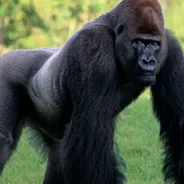When a friend or family member passes away, the hardest thing is saying goodbye. They say the dead live on in our hearts and minds, but when we lose someone, it sure feels like they're not coming back anytime soon. In the case of the Torajan people, however, death does not mean farewell. In fact, the deceased continue to walk the earth, with fresh makeovers every single year.
As disturbing as it sounds, every August, families in Toraja, Indonesia, dig up the bodies of their dead relatives before washing, grooming and dressing them in new clothes. No corpse escapes the unusual tradition, with everyone from grandfathers to babies exhumed.
Named "Ma'nene", or The Ceremony of Cleaning Corpses, the ritual has been a part of the Torajans' lives for centuries and, whereas to westerners the ritual may sound obscene, to the Torajans, it's all part of normal life.
After being dug up, the mummies are walked around the village by following a path of straight lines. According to the myth, these lines are connected with Hyang, a spiritual entity with supernatural power, and as this entity only moves in straight lines, the soul of the deceased body must follow the same path.
Whereas many people in the western world travel around the globe, making new homes for themselves along the way, the Torajans are reportedly nervous to travel too far, given the fact that their body will have to be walked back to the village by their relatives.
No, you didn't misread: according to ancient Torajan beliefs, the spirit of a dead person must always return to his village of origin, so the body must be buried there too. So if a person died on a journey, the family would go to the place of death and accompany the deceased home by walking them back to the village.
Weirdly enough, their culture has always been centred on death. Before the 20th century, Torajans reportedly lived in autonomous villages, where they practised animism, the worldview that non-human entities, including animals, plants, and often even inanimate objects possess a spiritual essence.
Nowadays, they celebrate the same occasions as the rest of us - but with one major difference. While people in the western world often pool all of their money into events like weddings or big birthdays, Tarajan families see funerals as the most important event of all.
The initial burial of the deceased - and celebration of their life - is incredibly important to the South Sulawesi residents and they have some of the most dedicated and complex funeral arrangements in the world. Firstly is the issue of saving up enough money to honour the dead; ceremonies are often held weeks, months, or sometimes even years after the death of a person to give the family of the deceased time to raise enough money. The body is not buried until the funds have been raised.
Until the funeral ceremonies are completed, the person is not considered to be truly dead but merely suffering an illness. The dead relative is simply referred to as “a person who is sick” or “the one who is asleep”. During this time period, the deceased family member is symbolically fed, cared for and even taken on outings - remaining very much a part of their relatives' lives, even after death.
According to reports, it's not unusual for people to find themselves deeply in debt in order to throw an adequate ceremony, with some young men even postponing or cancelling their weddings if a grandparent of the girl he loves is old enough to die soon. Rather than merely being a cultural issue, funerals also often determine a family's standing in society. Where a western couple may be subtly judged on the size of the engagement ring, or the number of guests at their soirée, it is the extravagance of a funeral which marks a Torajan family’s status.
Unsurprisingly, given their dedication to the cause, a funeral - known as a Rambu Soloq - does not just last one day, but many days. The ceremony begins with mourners attending a buffalo-slaughtering, with family members expected to kill animals in order to ensure the spirit of the deceased will live on peacefully, continuing to herd the buffaloes even in the afterlife.
After the sacrifice, the meat is distributed to visitors in accordance with their position in the community. The spirit of the deceased is also given a portion of meat, known as Aluk Todolo. Then, the horns of the animal are placed in front of the house of the family, with the more horns that decorate the front of the house, the higher the status of the deceased.
A funeral goes on for 11 days before the body of the deceased is buried; the soul of the deceased is said to linger around the village until the ceremony is completed, after which it begins its journey to the land of souls. A wooden effigy called tau tau, that is carved with the likeness of the dead person, is then placed in the balcony of the tomb to represent the dead and watch over their remains.
Amazingly, the Torajan people's traditions have gone on for at least as long as 700 years, with reports speculating that it goes as far back as prehistoric times. But, as peculiar as they sound to us, judgement from the west won't be seeing these sacred traditions going away anytime soon.
Reinforcing the eternal bond between the living and the dead, the Ceremony of Cleaning Corpses is something that will probably never be seen anywhere else in the world. Understandably, preserving this unique part of the Torajan culture is of high importance to the people who live in Toraja, as well as everyone else who values history and tradition.
With this in mind, the Torajans will continue to dig with their dead and wash, groom and redress them with every year that goes by. Some might say they're crazy, but others could say they're pretty lucky in a way. After all, where else on the planet does death not mean "goodbye", but "see you in a year's time"?












